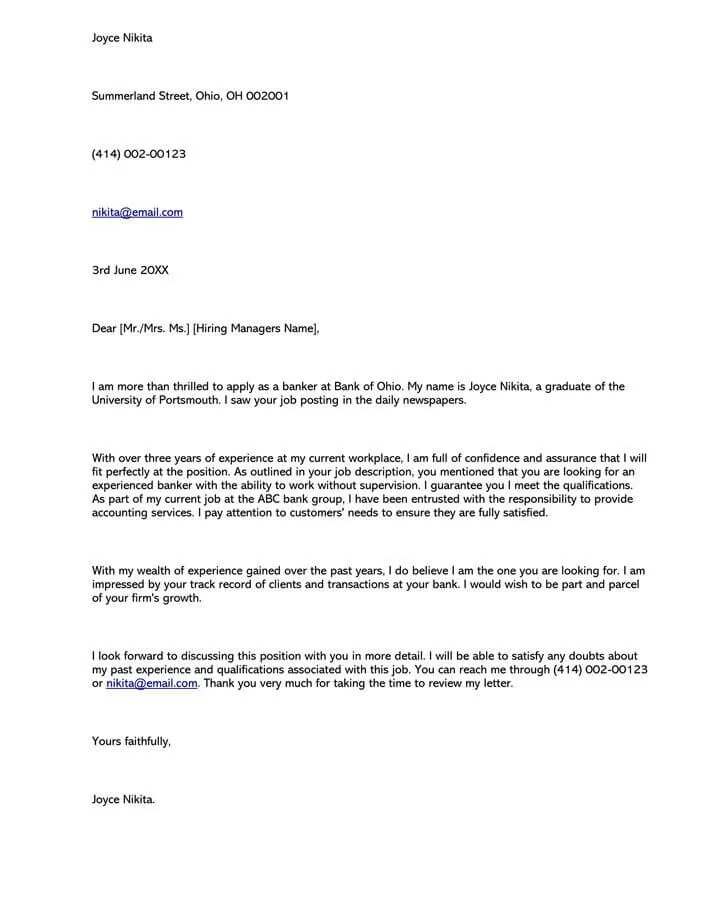Why a Cover Letter Matters for Bank Teller Jobs
In the competitive world of banking, particularly for entry-level bank teller positions, a well-crafted cover letter can be the key to unlocking your career aspirations. While a resume provides a snapshot of your skills and experience, a cover letter allows you to expand on these points, demonstrating your personality, enthusiasm, and suitability for the role. It’s your first opportunity to make a strong impression on the hiring manager and set yourself apart from other applicants. Without a cover letter, you risk being perceived as less invested in the position or lacking the communication skills necessary for customer interaction. The cover letter provides context, allowing you to explain any gaps in your employment history or highlight specific skills that directly relate to the bank teller role.
Highlighting Relevant Skills
Your cover letter is the perfect space to showcase the skills that make you an ideal bank teller candidate. The most successful bank tellers possess a unique blend of technical abilities and interpersonal qualities. By emphasizing these skills in your cover letter, you provide the hiring manager with concrete examples of your potential to succeed in the role. It’s not enough to simply list your skills; you need to demonstrate how you’ve used them to achieve positive results. Use action verbs and provide specific examples to make your claims more persuasive and memorable. This section of your cover letter should be tailored to align with the requirements outlined in the job description, highlighting the skills and experiences that the bank values most.
Customer Service Skills
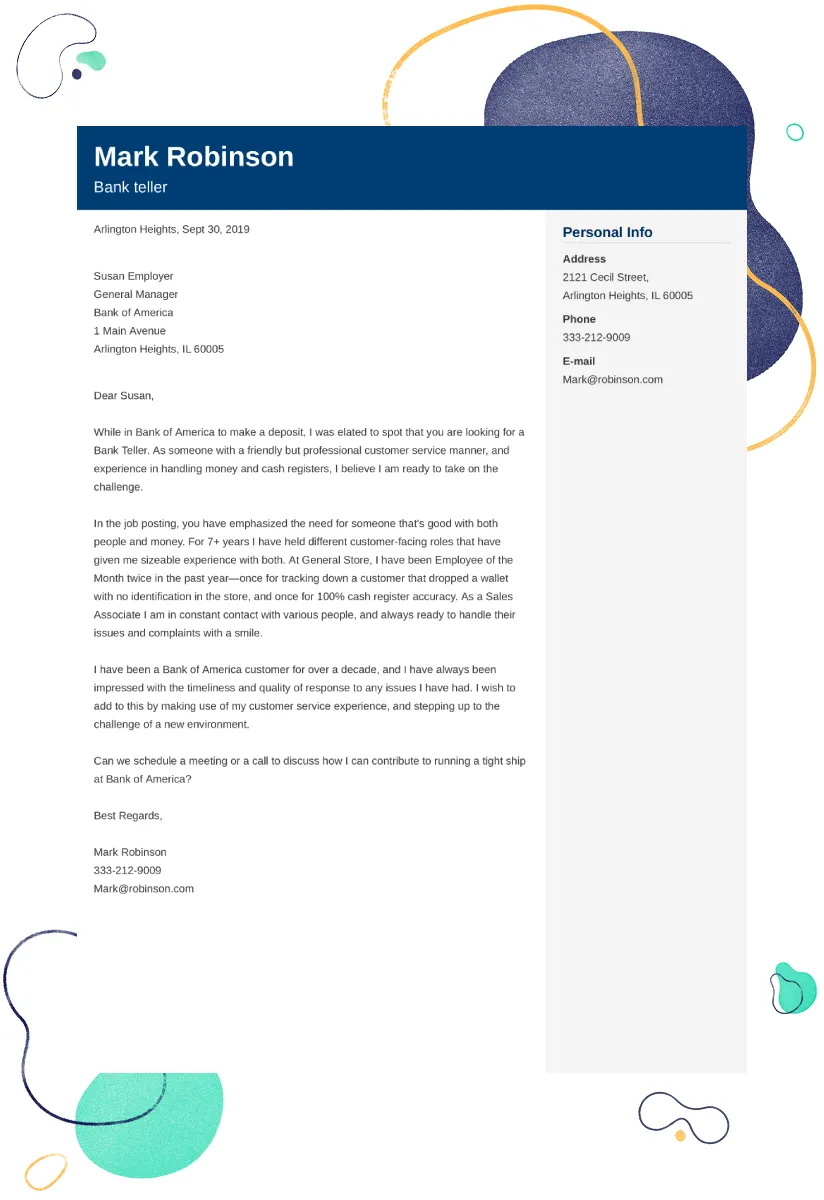
Exceptional customer service is paramount in a bank teller role. Your cover letter should highlight your ability to interact with customers in a friendly, helpful, and professional manner. Provide examples of situations where you went above and beyond to assist a customer, resolved a complaint, or ensured customer satisfaction. Demonstrate your empathy, patience, and ability to handle difficult situations with grace. Mention any training or experience you have in customer service, such as working in retail, hospitality, or call centers. Be sure to use phrases like, ‘I am adept at resolving customer issues’ or ‘I consistently strive to exceed customer expectations’.
Communication Skills
Clear and effective communication is crucial for bank tellers. Highlight your ability to communicate clearly and concisely, both verbally and in writing. Mention your experience in explaining complex information in a way that is easy for others to understand. Provide examples of situations where you used your communication skills to resolve a conflict, explain a financial product, or build rapport with a customer. Your cover letter should also demonstrate your excellent written communication skills. Ensure your letter is free of grammatical errors, typos, and unclear phrasing. Mention any public speaking experience or training you may have.
Accuracy and Attention to Detail
Bank tellers must be highly accurate and detail-oriented. Your cover letter should emphasize your ability to handle money, process transactions, and maintain accurate records. Provide examples of situations where you demonstrated your attention to detail, such as reconciling accounts, balancing a cash drawer, or completing paperwork with precision. Mention any experience you have with data entry, accounting, or other tasks that require accuracy. You might include details about any training you’ve received in these areas or any specific software you’re familiar with. Emphasize your commitment to accuracy and your ability to avoid errors.
Structuring Your Cover Letter
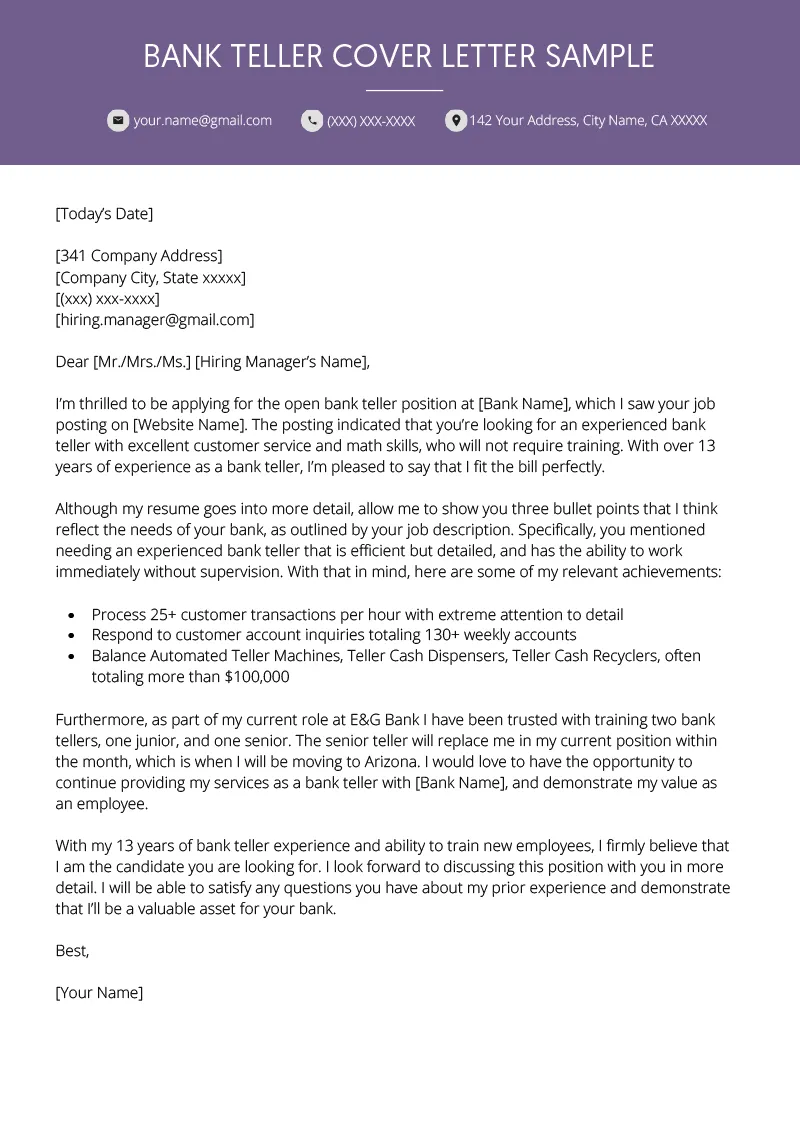
A well-structured cover letter is easy to read and highlights your key qualifications. A standard cover letter typically includes an opening paragraph, body paragraphs, and a closing paragraph. Each section should have a clear purpose and contribute to the overall impact of your letter. Pay close attention to the layout, including font choice, margins, and spacing, to create a professional and polished appearance. Use a professional tone throughout your letter and tailor your language to match the tone of the bank. Review and revise your cover letter multiple times to ensure a professional and well-organized presentation of your qualifications.
Opening Paragraph
The opening paragraph is your first opportunity to grab the hiring manager’s attention. Start with a strong statement that immediately identifies the position you’re applying for and how you learned about it. Briefly mention why you’re interested in the role and what makes you a strong candidate. Avoid generic openings. Instead, personalize your introduction and make it clear that you understand the bank’s needs and are enthusiastic about the opportunity. Express your interest in the bank and mention something specific that has attracted you to the institution. Make it clear why you are the right fit for the job and what you can offer.
Body Paragraphs
The body paragraphs should provide specific examples of your skills and experience. Use these paragraphs to expand on the points you made in your opening. Support each claim with concrete examples that demonstrate your abilities. Use action verbs to describe your accomplishments and quantify your results whenever possible. Group related skills and experiences together to create a logical flow. Focus on the aspects of your background that align with the requirements of the job description. The body of your cover letter should be a compelling argument for why you are the best candidate for the bank teller position.
Closing Paragraph
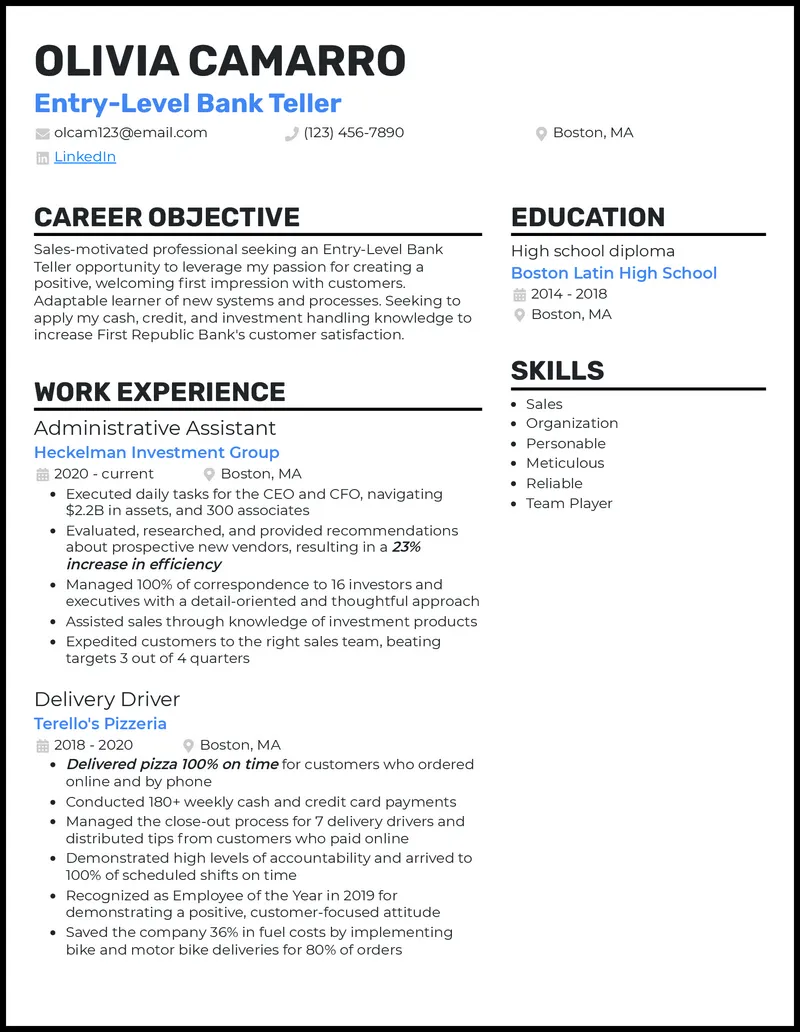
The closing paragraph should reiterate your interest in the position and thank the hiring manager for their time and consideration. State your availability for an interview and provide your contact information. Reiterate your enthusiasm for the opportunity and express your confidence in your ability to excel as a bank teller. End with a professional closing, such as ‘Sincerely’ or ‘Respectfully’. Proofread this section carefully to ensure accuracy and professionalism. Make sure to include your phone number and email address so that they can easily reach you to schedule an interview.
Showcasing Your Personality
While highlighting your skills and experience is important, your cover letter should also showcase your personality and enthusiasm for the role. Banks seek employees who are friendly, approachable, and customer-focused. Injecting your personality into your cover letter can help you stand out from other applicants. Use a professional yet personable tone and write in your own voice. Avoid sounding overly formal or robotic. Share a brief anecdote that highlights your positive attitude or strong work ethic. Show your personality by mentioning something unique about yourself, like a particular hobby or interest. Remember that your cover letter is a chance to let your personality shine.
Quantifying Achievements
Whenever possible, quantify your achievements to make your cover letter more impactful. Use numbers and data to demonstrate your accomplishments and the value you can bring to the bank. Instead of saying, ‘I improved customer satisfaction,’ say ‘I increased customer satisfaction scores by 15% through improved communication.’ Quantifying your achievements helps the hiring manager understand the tangible results you’ve achieved in previous roles. This approach provides concrete evidence of your capabilities and makes your cover letter more compelling. Consider using percentages, dollar amounts, or other measurable metrics to showcase your accomplishments. Be specific and avoid vague statements.
Mentioning Relevant Experience

Even if you have limited direct banking experience, highlight any relevant experience you do have. This could include experience in customer service, cash handling, data entry, or any other skills that are transferable to the bank teller role. If you have volunteered or worked in a role where you handled money or interacted with the public, be sure to mention it. Highlight any training or certifications you have that are relevant to the role. If you’re a recent graduate, you can include any relevant coursework or projects you completed. If you’re changing careers, explain how your skills transfer to the banking industry. Be sure to make it clear how your past experiences align with the requirements of the job description.
Tailoring Your Cover Letter
Avoid sending the same cover letter to every bank. Customize your cover letter for each position you apply for. Research the specific bank and the requirements of the job description. Address your cover letter to the hiring manager by name (if possible). Highlight the skills and experiences that are most relevant to the specific role and the bank’s values. This shows that you’ve taken the time to understand their needs and that you’re genuinely interested in the position. Tailoring your cover letter shows the hiring manager that you are invested in the specific opportunity.
Researching the Bank
Before writing your cover letter, research the bank to understand its mission, values, and culture. Visit the bank’s website, read news articles, and browse their social media profiles. This research will help you tailor your cover letter to align with the bank’s specific needs and goals. Mention specific programs or initiatives that appeal to you, showing that you’ve taken the time to learn about the institution. Understanding the bank’s values will also help you demonstrate how your personality and work ethic align with their culture. Mentioning the bank’s name in the cover letter shows you are not sending out a generic application.
Addressing the Hiring Manager
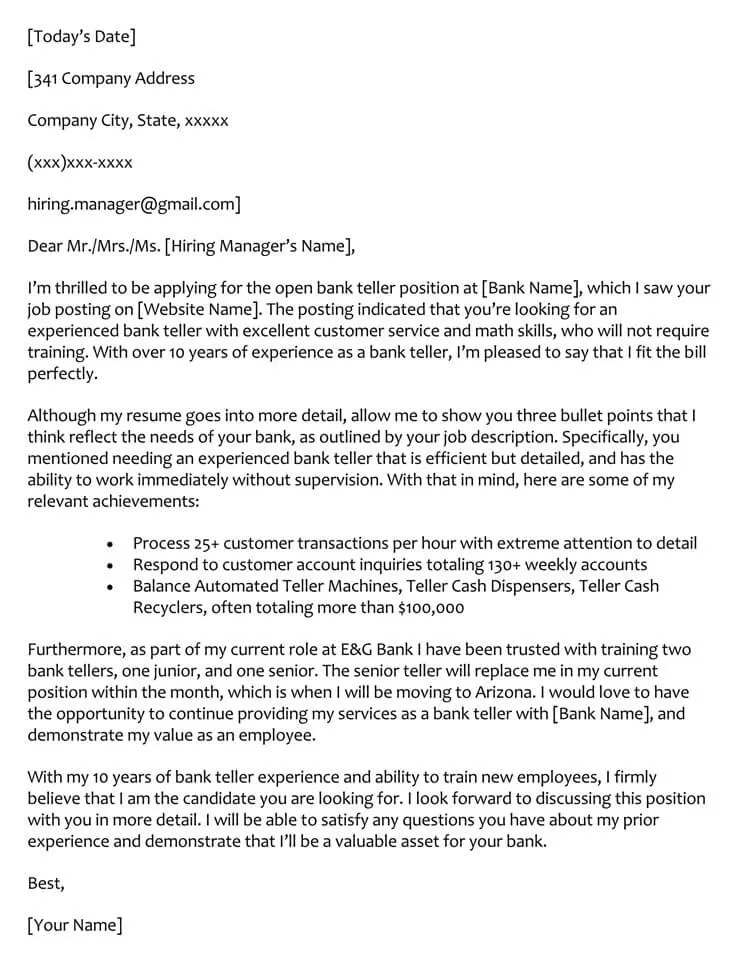
Whenever possible, address your cover letter to the hiring manager by name. This shows that you’ve done your research and that you’re paying attention to detail. If you cannot find the hiring manager’s name, you can use a general salutation, such as ‘Dear Hiring Manager.’ Avoid using generic greetings, such as ‘To Whom It May Concern,’ as these can make your cover letter seem impersonal. If you find the name of the hiring manager, make sure to double check the spelling and ensure the correct title is used. Addressing the letter to a specific person shows you care about the application.
Proofreading and Editing
Proofreading and editing are essential steps in the cover letter writing process. Before submitting your cover letter, carefully proofread it for any grammatical errors, typos, or unclear phrasing. Errors can undermine your credibility and give the impression that you lack attention to detail. Read your cover letter aloud, and ask a friend or family member to review it. Use a grammar checker to catch any mistakes that you might have missed. Make sure your cover letter is free of any errors. Consider having someone else review your cover letter for a second opinion. Reviewing the cover letter multiple times can help in avoiding embarrassing mistakes that can prevent you from getting the job.
